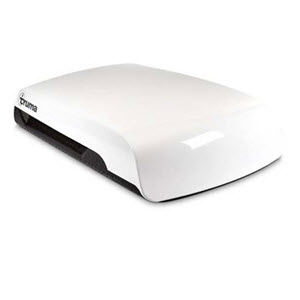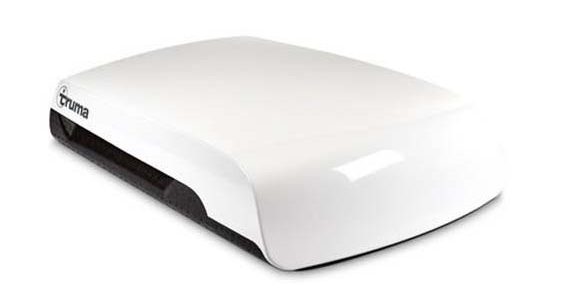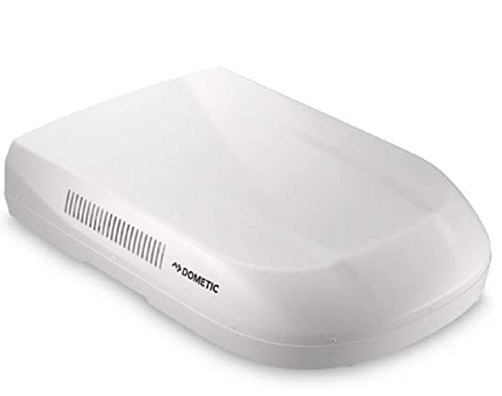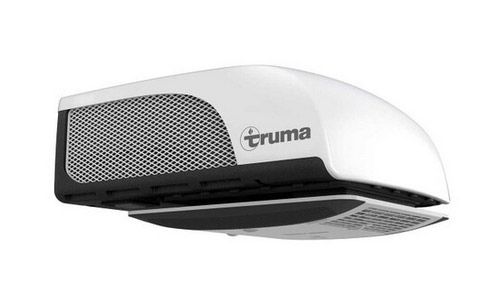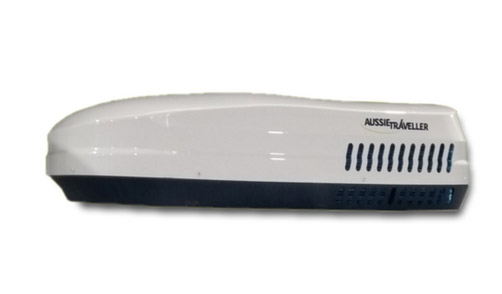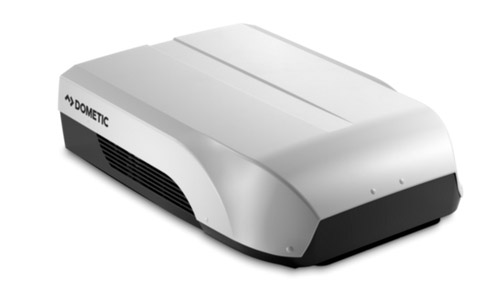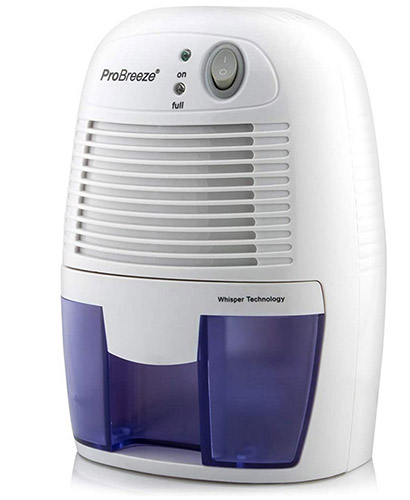Keep cool when traveling the US in your RV with a quality air conditioner!
When traveling by RV you are going to spend a lot of time inside sleeping, cooking or just relaxing reading a book. For this reason you want your RV to be as comfortable as possible, and that includes the climate. Summer can be HOT in most US states so having a quality RV air conditioner to keep you cool is a no-brainer.
It’s highly likely your RV will already have an air conditioner fitted, but if you are in the market for a new one, or your current one has kicked the bucket then it’s worth taking a look at the following reviews of RV specific air conditioners.
Anyway, let’s get straight into our best RV air conditioner reviews. In our opinion, the best RV air conditioners are:
- Truma Aventa Comfort Reverse Cycle Roof Top Air Conditioner – Top Pick
- Dometic IBIS MK4 – Slimline and Reverse Cycle
- Pro Breeze Electric Mini Dehumidifier – Best for small campers
- Truma Aventa Compact Roof Top Air Conditioner
- Aussie Traveller Air Conditioner – Best slimline
- Dometic Harrier Plus Air Conditioner – Best brandname
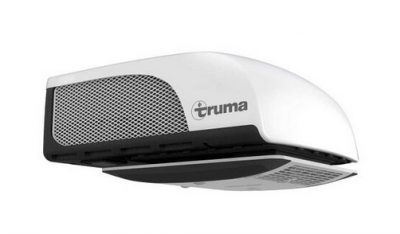
Your Guide to buying a RV Air Conditioner in America
Time spent traveling in a motorhome or RV can be challenging, and while traveling in the US an air conditioner is a must-have luxury to take, second to a good portable fridge. RV air conditioners are not cheap, and many factors need proper consideration and understanding. Therefore, you must know every aspect and parameter before deciding which product is best for your next trip.
Things to Know Before you buy
British Thermal Unit (BTUs)
When looking for an AC unit for your little space, BTUs are probably the most significant factor to consider. British thermal unit helps you understand just how well an air conditioner can work in a caravan. Any product that offers more than 13500 BTUs should be your ultimate priority if you are a frequent traveler. For large caravans, an air conditioner with 18000 BTUs is required for better cooling across space.
Know that it is never about great cooling in a single room but about your entire vehicle. It is definitely a very large space to cool, unlike an open room where cooling can easily enter. Also, RV’s have metal construction so hold more heat than anyone’s expectations. You are likely to spend many hours without shade, so all these aspects indicate that you will require extra cooling capacity to get through the adventure.
Types Of RV Air Conditioners
Considering the type of AC you want for your RV is also very important. There are 4 types to choose from, i.e. rooftop AC, vent-free AC, portable AC, and window AC.
A lot of people prefer buying rooftop air conditioners as they are space-saving products and are easy to fix in the roof. They are available from anywhere between 5000-15000 BTUs and can be ducted or non-ducted to suit everyone’s requirements. The unit is influenced by external weather, so cooling is through the outside air.
Vent-free or swamp coolers can manage moist air ventilation better than other types of RV air conditioners. They are compact, small in size and don’t require refrigeration process to cool your RV. The only drawback is that they need some of your floor space to work efficiently.
Portable ACs come with adjustable frames and are the cheapest as compared to all. They take up too much space and also not as energy efficient as other products out there.
Window air conditioning units for RV’s are like the ones we use at home. They have incredible cooling capacity and doesn’t take up a lot of floor space. They are compact, easy to install, and noiseless.
Heating/Cooling Mechanism
Another important factor to consider when buying a RV air conditioner is how the cooling and heating mechanism works. Many caravan ACs work via heat exchange to cool up space and an electrical heat component to keep warm.
Many reverse cycle units are also available that uses a compressor for heating and cooling. This method is more efficient and is most popular when it comes to RV air conditioners.
Size
Typically, there are 2 types of air conditioner sizes, i.e. 2-2.5kW (suitable for vehicles with 5meters length) and 3kW+ (for vehicles up to 7 meters long).
Accessories
Most of the RV AC units are available in the form of a complete kit with almost all the necessary components required for installation and working. However, there are some more accessories that you must look for when placing your order.
H-frames are manufactured for the caravan’s roof to deliver more support and strength to a rooftop air conditioner. Thick roof adapters are also important if the roof of your caravan is 85mm thick or more. Another accessory to have with the package is the adapter for 400mm roof opening. This frame is important to have as it enables you to install 360 x 360mm AC in a 400mm x 400mm roof opening.
Installation
A good-quality RV air conditioner must come with easy to understand fitting and installation instructions. However, if you don’t have adequate knowledge, you can always ask a qualified installer to help you with the process. Know that some models require a refrigerant line and so a licensed technician is needed for the installing.
Warranty and Insurance
Before installing your own RV air conditioner, be sure to check with your RV manufacturer to ensure your waranty will not be affected, and also inform your insurer so they can adjust your caravan insurance policy.
Popular RV Air Conditioner Questions
Q: Do RV AC units require re-gassing?
If you own a vehicle that runs frequently, re-gassing is essential to keep the seals lubricated and prevent the leakage. Most of the air conditioners are sealed units so don’t need re-gassing unless you see a broken pipe or leakage that requires fixing.
Q: How many air conditioning units do I need?
The number of AC units depends on the size of your recreational vehicle. RVs with more than 8-meter length need more than just one air conditioner for effective cooling. The position of your cooling unit along with its ducted/conducted nature is also quite influential.
You can use ducted systems with both under bench and rooftop air conditioners as they allow effective distribution of cool air around the vehicle. Rooftop units can also be non-ducted, which may indicate you need two different units to have proper cool coverage through your caravan.
Q: What does 360mm and 400mm opening mean?
RV air conditioners are designed and manufactured to fit a 400mm or 360mm square roof opening. 400mm opening is an initiate of Europe whereas the 360mm opening is for 14-inch American style roof vent. Most of the models in our list have adapters to suit both these sizes, so it’s better to select an apt product from our top picks.
Q: Which is best? Rooftop or built-in style air conditioner?
Though there is no winner having a rooftop style air conditioners should be your preference because they do not take up a lot of space and give high startup cooling in the central location of your RV. Built-in models, on the other hand, can add additional weight to the caravan and affect the roof’s lining irrespective of its strength. Other things to consider when buying built-in style air conditioners include canopy lifters, gas struts and hoist gear changing.
Conclusion
There you go. These are our best Caravan air conditioners for 2020. The clear winner for us is Dometic Air Conditioner IBIS MK4. This unit is easy to mount; compact doesn’t take a lot of space and easily suit a rooftop style. This product is reliable, high-quality and possesses great value for your money.

